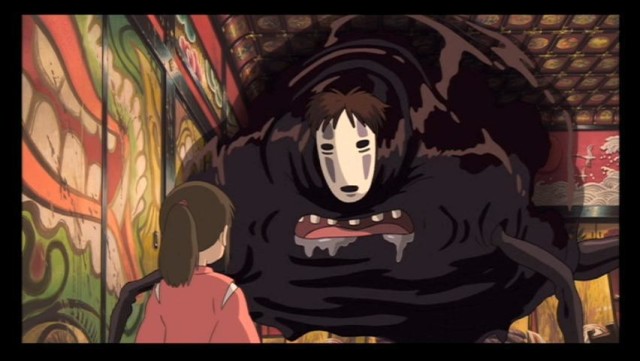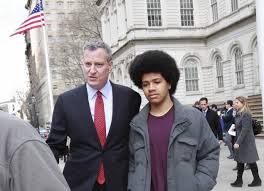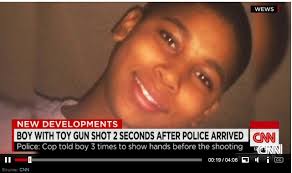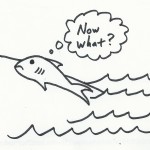In Defense of Shame

I come here not to bury shame, but to praise it. Sort of.
There has been a surge in the media about the damaging impact of shame on our individual psyches. In general, these are pretty much outstanding discussions about how we internalize shame and allow it to debilitate our lives in ways subtle and not-so. In particular, I recommend this talk by Dr Brene Brown:
Dr Brown’s talk, and her fine book Daring Greatly, have been very useful in my recent evolution into whatever it is that I am about to be becoming. I’m not a big fan of the self-help genre, but I am glad I read this one. She’s funny and she has some humane advice for people who are susceptible to shame.<fn>Most of us, really. Just not the ones who should be. See below.</fn>
Right along these lines we’ve seen a recent TedTalk from Monica Lewinsky, and while it is not as essential as Brown’s talk, it is a pretty gutsy appearance from a woman who was put into the stocks in the public square on a scale that is still hard to understand.<fn>That she was not crushed to dust by that horrific ordeal is really hard to believe. Respect!</fn> In So You‘ve Been Publicly Shamed, writer Jon Ronson relates episode after episode of gang-shaming to illustrate the ways public shaming via social- and traditional-media has become a slithering beast that titillates and thrills the pitchforked mob as it consumes and spirits away everything in its path.

And I am in pretty solid agreement with these folks. Shame and shaming are powerful weapons, especially when turned on the basically powerless – children and teens, especially, but human beings generally. And as Lewinsky notes, it has devolved into a sort of blood sport that treats its targets as disposable widgets that exist outside of a human frame. It is random, cruel, and serves no real purpose, unless one considers the development of smug superiority a purpose.
But I have to admit to longing for a time when shame was a useful check on more egregious human behaviors. Now surely, I do not accept that a young man exploring his sexuality in the privacy of his dorm room is a worthy target, any more than is the careless Tweeter who is so-to-say exhibiting his/her ass through imbecilic tweets deserving ruination for what amounts to minor stupidity. Nor does a child deserve to be humiliated to ensure a change in behavior, an all too prevalent mode of adulting, one that is probably just as damaging as being quick with the belt.<fn>My first day of school in a new town, we arrived 3 days after classes began. One teacher, when I handed her my forms, snarled, “Class started 3 days ago and you’re late. Aren’t you ashamed?” I literally could not look at that beast for the entire school year. You bet I was ashamed, but I had no idea why. The shame should have belonged to her.</fn>
So true, a lot of the instances of shaming and humiliation amount to nothing better than blood sport, a distillation of the paparazzi-hounding that celebrities must endure. And it is a favorite tool of deflection among those who feel shame but wish it to belong to someone else.<fn>Let us consider the careers of the modern-day Savonarolas like Swaggart and Haggard and Westwood Baptist.</fn> Surely, we would be better off as a society if we could all just leave each other the fuck alone, or at least mind our own damned business. Most of what we are induced to pay attention to has absolutely nothing to do with us. Look away, fercryinoutloud.
But as rampant as this kind of shaming has become, we have lost shaming as a tool in the realm where it could really make a difference.
Some years back, a pal and I were philosophizing about the havoc St Ronaldus Maximus had wreaked upon our land. At one point, we came upon this damning formulation:
Reagan erased shame from our public vocabulary.
Rick Perlstein’s book The Invisible Bridge: The Fall of Nixon and the Rise of Reagan presented this idea in a different form:
…all that turbulence in the 1960s and 70s had given the nation a chance to finally reflect critically on its power, to shed its arrogance, to become a more humble and better citizen of the world – to grow up – but Reagn’s rise nipped that imperative in the bud…Then along came Ronald Reagan, encouraging citizens to think like children…”
This was amply demonstrated in the reaction to the movie Wall Street; when Gordon Gekko declares that “Greed is good!”, too many viewers mistook his character as the hero of the morality play, with Bud Fox seen as the schmuko loser for having some shred of human decency.<fn>A similar mis-reading came with the more recent Wolf of Wall Street, wherein the lunatic behavior of the main characters was received as some kind of model for emulation.</fn> Up until the Reagan raj, greed and excessive consumption were generally agreed to be shameful, poor behavior. No more: Lifestyles of the Rich and Famous should have set the tumbrels rolling and the pitchforks aloft. Its impact was the opposite – the repugnant people wallowing in their tacky excess became heroes. Did they deserve shaming for being rich? Hell no. But their tasteless and thoughtless exhibitionism certainly earned them the kind of revulsion one might feel for public masturbators or pet-torturers. Instead, what we saw was the elimination of shame as a response to shame-worthy behavior. Even those rapacious bastards Rockefeller, Carnegie, &c. had the wit to recognize that they had to offer philanthropic gestures to counterbalance their shameful behavior.
Why, asks the frustrated reader, is this worthy of 1000+ words at this particular moment in time? What spurs this unhinged diatribe?
Two words: Judith Fucking Miller.<fn>One of those words is a bonus.</fn>
Of late, this war cheerleader and proven fabricator has been making the rounds to promote her book, and is being treated on the electric picture radio machine as a reputable person who deserves respect. Yet she offers no apology for her part in the fraudulent sale of a war that claimed over 100,000 lives.
She has no shame. She should. She should wear sack-cloth and crawl on her knees cleaning bedpans at Walter Reed until her last breath. Instead, she is collecting checks.
Is Bill Kristol (to name yet another keyboard kommando) ashamed of being absolutely wrong on every major question while cheerleading other people’s children to war? This mendacious hack isn’t even worthy to clean the bedpans.
Are any of the architects of war ashamed? Are the Masters of the Universe, those geniuses of financial innovation who drove the economy into a ditch, ashamed?
Does Henry Kissinger feel shame?
Rumsfeld? Cheney?
Not so much. No matter how wrong or damaging these people have been, they never seem to have to pay for their track record. I mean, Jesus H Christ bearing false witness, what does it take for someone like that to be shunned, to be told firmly to please shut up and go away? I’m not asking for ritual seppaku – though I would not be opposed – but some sense of decency and remorse would be a good start.
Is the inability to feel shame a perfect definition of sociopathy?
OK, wise guy pointy headed liberal writer – who decides whether something or someone is shame-worthy?
Ah, the judgement call. And aye, there’s the rub. And it may be that any usefulness that shame once had is now gone, frittered away on our reflexive addiction to piling on whenever a Kardashian or a sportscaster or an athlete acts the public (or semi-private) tool. And our cultural tendency to focus on the trivial<fn>e.g., Jameis Winston’s asinine public performance of “fuck her right in the pussy”, which remains the only act that has earned him any disciplinary action</fn> renders shame that much less useful in cases where it is called for. Because if the tool we use to shame Kelly Clarkson for having the gall-durned nerve to appear in public before losing her baby weight is also the best we can do when a monster like John Bolton<fn>Yeah, this miserable fuckwit. </fn> can’t shut his goddam piehole no matter how many times he’s proved wrong, well, I’m not sure that opprobrium has any heft anymore.
</fn> can’t shut his goddam piehole no matter how many times he’s proved wrong, well, I’m not sure that opprobrium has any heft anymore.
I’ll give this much to Nixon – I believe he knew that his misdeeds were shameful, and knew it so well that it drove him to even more misdeeds to hide the first ones. Reagan and his gang were just the opposite: they replied with a wink and a nod, letting us all know that shame was no longer a reasonable response. You take what you want, do what you want, and never, never apologize.
I mean, really…some people just have no shame.

This wretched woman has been subject to a flood of online shaming. Does she deserve it? I say absolutely. Is it making any difference? Probably not. She’ll be out gunning down more creatures soon, no doubt, and Ricky Gervais is racking up the hit counts.
Still, I defend the potential utility of shame. Properly recognized, it should serve us all as a guide in our personal decisions and behavior. I agree<fn>Hell, I know too well</fn> that shame can become a distorting force that can cripple a person. But still, the old adage of ‘never do anything you wouldn’t want your Mother to see you do’ certainly has shame at its core. But that’s not necessarily so wrong.<fn>If you grew up under a Mommie Dearest scenario, my apologies. But there must be someone, living or dead, whose admiration you value. Let that person/entity be your invisible observer.</fn>
Maybe shame is just for the little people now? Or maybe it’s just another form of entertainment, the precursor to and inevitable outgrowth of reality teevee. If that’s it, we’re all the lesser for it.
PS – This is a great book that explores the notion of shame far better than I do, but in a different cultural context.








